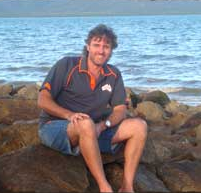 Watching Dr Phil the other day I listened to how a girl was out drinking with a group of “so called friends” boys, they all got drunk and she was gang raped.
Watching Dr Phil the other day I listened to how a girl was out drinking with a group of “so called friends” boys, they all got drunk and she was gang raped.
Why did these boys take advantage of a drunken girl instead of just taking her home? There is no excuse for this. She ended up committing suicide because they distributed photos of the crime and harassed her both on social media and texting.
It got me thinking about what are we saying to both our girls and boys when it comes to behavior when out socially?
Often the words we use are simple and top line discussion instead of drilling down on exactly what behaviour is unacceptable. Simply saying, “be good” or “don’t get into any trouble” isn’t enough for a young brain to compute or to make sense of, because at that moment they are thinking – of course I will be good, dad.
Lets stop for a minute, sit them down and have a real conversation about what good behaviour looks like and specifically how to look after friends and girls?
Here are some real topics to cover off with your sons and daughters…
- When you are out drinking with friends and you see a girl that is drunk or vulnerable, you be responsible and ensure she is safe and no
one touches her in an indecent way. If they do, gather your friends (for support) and say something to make it stop and take her to safety. - Call 000 if you feel someone needs more help than what you can give.
- Never have sex or be intimate with a girl that is not consenting to it. If she says NO she means NO. Walk away, that is the end of that.
- If you see a friend (girl) that is drinking to much, make sure she has girlfriends around who are looking out for her. If not, alert her friends.
- If girls are drinking at a party and the boys out number the girls the girls should leave and go home.
- If you sense trouble ahead on the street, cross the road and stay away from it.
- Avoid eye contact.
- Stay with your friends and don’t interact with aggressive people – walk away.
- Go home before 1am and ensure the girls who are with you get home safely.
- Do not take photos of people or allow your friends to take photos of people in compromising position i.e. nude photos, sexual photos
- Never post a comment on social media that would hurt the feelings of another – discuss the feelings that can hurt i.e. embarrassment, unliked or feeling ashamed.
- Respect other human beings and treat them how you would like to be treated yourself.
- Call me anytime if you need picking up.
There are many more direct conversations to have. I would be interested in knowing what other topics you feel would be good to discuss. These topics help keep our children and others safe. If they are ever in the situation, they will draw back on the conversation and most likely act according to what was discussed.
Please like this and share to everyone for discussion.


 As we know the norm has been that when children are born they take on the fathers surname. After divorce, women sometimes change their name back to their maiden name or if they remarry, may change their surname to their new partners surname.
As we know the norm has been that when children are born they take on the fathers surname. After divorce, women sometimes change their name back to their maiden name or if they remarry, may change their surname to their new partners surname. At some point in time it is going to be necessary to understand what’s happening to your daughter as she moves from being a girl to becoming a teenager and woman. Knowledge on these changes will help you stay connected and understand what she is experiencing. You will also not be left out of the conversations.
At some point in time it is going to be necessary to understand what’s happening to your daughter as she moves from being a girl to becoming a teenager and woman. Knowledge on these changes will help you stay connected and understand what she is experiencing. You will also not be left out of the conversations.

















Recent comments